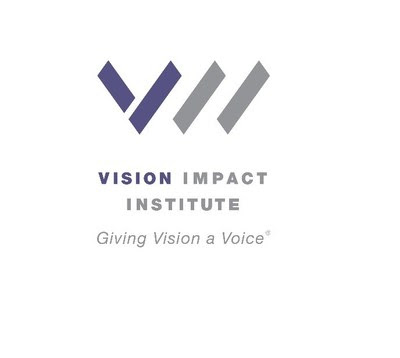الرياض، المملكة العربية السعودية, 8 يوليو / تموز 2021 أكد خبراء صندوق النقد الدولي استمرار تعافي الاقتصاد السعودي، وتباطؤ تضخم مؤشر أسعار المستهلكين، متوقعين أن يبلغ نمو إجمالي الناتج المحلي غير النفطي 4.3% خلال العام الجاري، و3.6٪ خلال العام 2022م. فيما تشير توقعات الصندوق إلى قيادة القطاع الخاص للنمو في العام الجاري ليبلغ 5.8٪، ويستمر على المدى المتوسط والطويل بمتوسط نمو قدره 4.8٪.
جاء ذلك في البيان الختامي الصادر اليوم عن مشاورات المادة الرابعة الافتراضية لعام 2021، مشيدين باستجابة حكومة المملكة السريعة والحازمة لجائحة فيروس كورونا (كوفيد – 19)، وأن الإصلاحات الطموحة التي كانت جارية في إطار رؤية المملكة 2030 لعبت دوراً رئيسياً في الحد من الآثار السلبية للجائحة على الاقتصاد السعودي، إضافة إلى الجهود المبذولة للتنسيق بين الجهات الحكومية والإنشاء المبكر للجنة العليا لاتخاذ التدابير والاحترازات اللازمة للحد من انتشار الوباء، وتسارع التحول الرقمي للحكومة والخدمات المالية، وإصلاحات سوق العمل، والإمكانات المتوفرة لتنفيذ السياسات الاقتصادية، التي مكنت الحكومة من إدارة الأزمة بشكل جيد. كما أسهم “برنامج دعم تمويل القطاع الخاص” الذي أطلقه البنك المركزي السعودي في مساندة المنشآت الصغيرة والمتوسطة في مواجهة تحديات الجائحة، كما أكد تقرير مشاورات المادة الرابعة نجاح سياسات دعم الاقتصاد غير النفطي، وأشاد بدور “اللجنة رفيعة المستوى” في إدارة الأزمة بشكل فعال واستباقي، بالإضافة إلى تدابير الاحتواء المبكر والصارم التي أدت إلى الحد من عدد الحالات والوفيات.
وحول أداء الاقتصاد حالياً، أشار البيان إلى أن إصلاحات سوق العمل ستعزز تنافسية وجاذبية سوق العمل للعاملين فيه واستقطاب ذوي الكفاءات والمهارات العالية، وفيما يتعلق بالإصلاحات المستمرة لتعزيز دور المرأة في الاقتصاد السعودي؛ توقعوا استمرار الارتفاع في معدلات مشاركة المرأة في القوى العاملة حيث ارتفعت نسبة المشاركة بمقدار 13 نقطة مئوية إلى ما يزيد على 33% على مدار العامين الماضيين. كما توقع البيان أن يستمر نمو الائتمان الممنوح للقطاع الخاص بقوة، مدعوماً بالتمويل العقاري وتمويل المنشآت الصغيرة والمتوسطة، واعتبروا أن إصلاحات نظام الضمان الاجتماعي تُعد خطوة مهمة لتعزيز إطار تقديم الدعم لذوي الدخل الأقل، كما أشار خبراء صندوق النقد الدولي إلى وفرة موارد الطاقة المتجددة في المملكة، وأنها ستجذب مستثمري القطاع الخاص المحليين والأجانب، كما رحبوا بالإعلان رفيع المستوى عن استراتيجية المناخ السعودية والتزام حكومة المملكة بخفض انبعاثات الغازات الدفيئة.
وحول المالية العامة والشفافية، أكد تقرير خبراء الصندوق أن المملكة تحرز تقدماً هاماً لزيادة الشفافية في إطار المشتريات العامة، بما في ذلك ما تم من خلال “منصة اعتماد”، كما أثنى البيان على الوتيرة المميزة في إصلاحات السوق المالية لزيادة السيولة والعمق في أسواق الأسهم والسندات المحلية، بما في ذلك إتاحة وصول أكبر للمستثمرين الأجانب وتوسيع أدوات ومنتجات السوق المالية كإدراج صناديق العقار المتداولة (ريت) والمشتقات المالية. وأشار الخبراء إلى أن سيولة النظام المصرفي السعودي تُعد في مستويات مريحة.
وتطرق البيان الختامي، إلى الشمول المالي والتكنولوجيا المالية، مبيناً أن قطاع التكنولوجيا المالية في السعودية تطوّر بشكل سريع، بدعم من البنك المركزي السعودي وهيئة السوق المالية، مشيراً إلى استمرار مناسبة ربط سعر الصرف بالدولار الأمريكي وحجم احتياطيات المملكة المرتفعة.
من جانبه، قال معالي وزير المالية الأستاذ محمد بن عبدالله الجدعان، إن البيان أبرز المؤشرات الحالية والآفاق المستقبلية الإيجابية للاقتصاد السعودي، الذي نجح في اجتياز الكثير من العقبات والتحديات التي واجهها العالم خلال هذا العام والذي قبله؛ مما ساهم في الحفاظ على الاستدامة المالية التي عززت من متانة وقوة الاقتصاد السعودي، مؤكداً الدور البارز للإصلاحات الاقتصادية والهيكلية التي أجرتها حكومة المملكة في ظل رؤية 2030 وإسهامها في تحقيق نمو اقتصادي مستدام وشامل. ورحب معاليه بإشادة خبراء صندوق النقد الدولي بجهود المملكة في التخفيف من الآثار الاقتصادية والاجتماعية والصحية لجائحة كورونا.
يذكر أنه سبق صدور بيان عن بعثة خبراء صندوق النقد الدولي إثر اختتام مشاورات المادة الرابعة الافتراضية مع المملكة العربية السعودية لعام 2021م، والتي جرت خلال شهر (إبريل 2021م). ويأتي هذا البيان الختامي تأكيداً للنتائج المبدئية التي توصل إليها البيان السابق.


